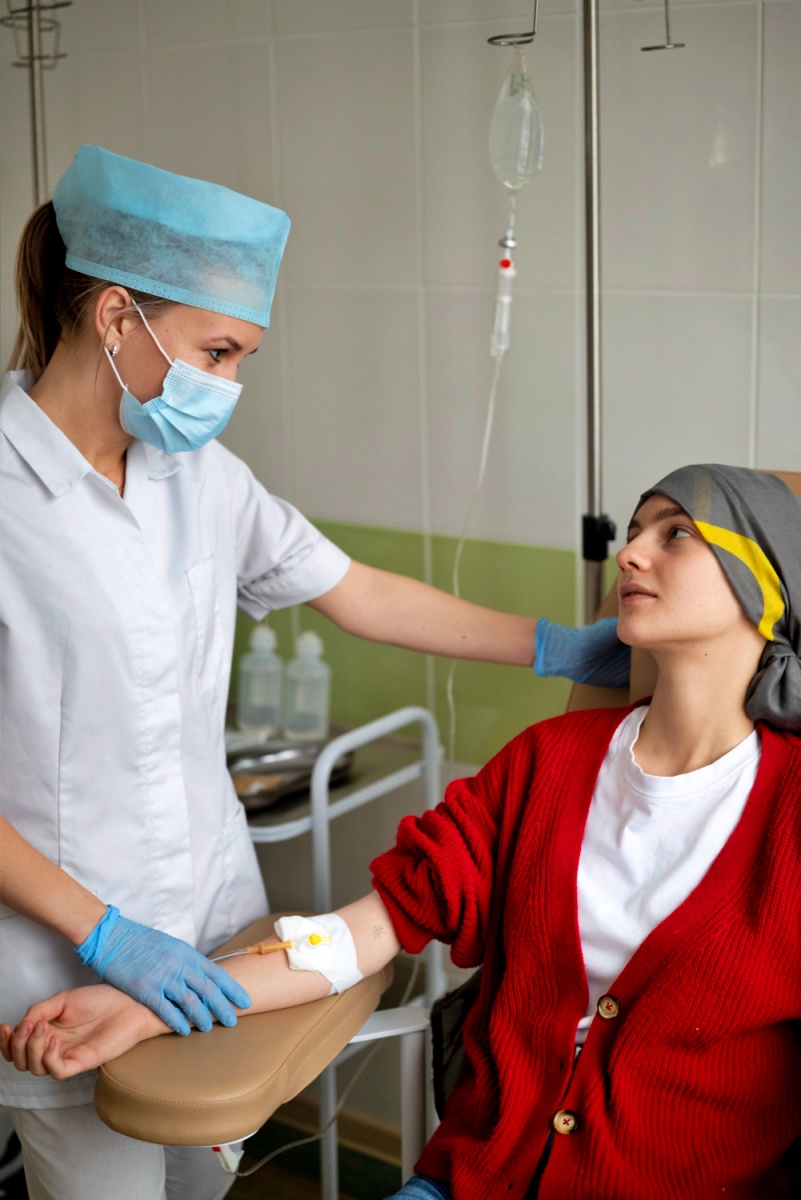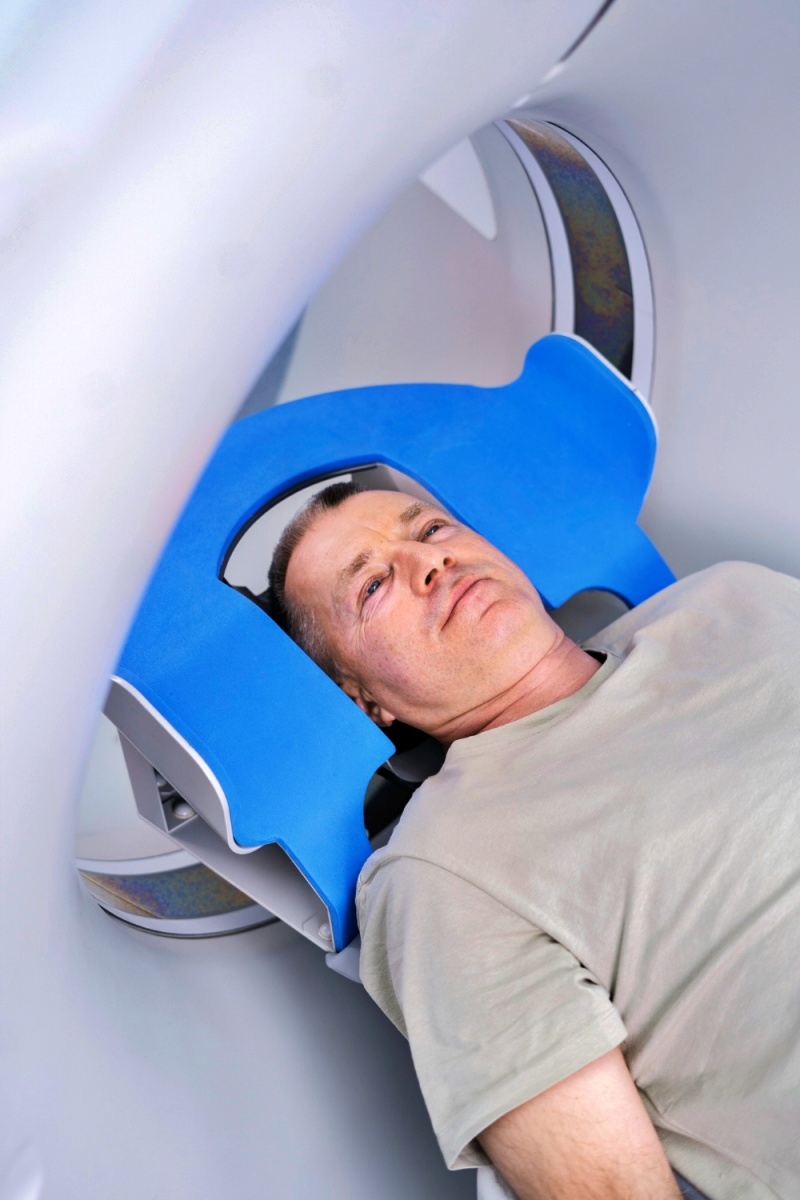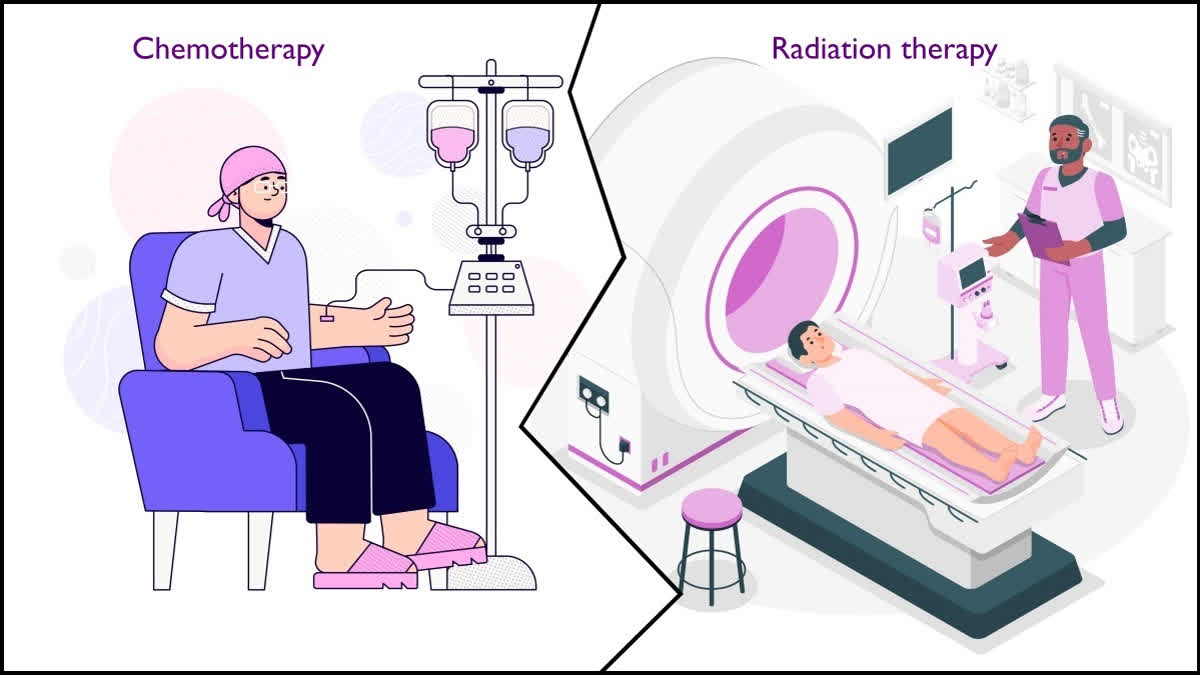In the battle against cancer, the treatments available today are targeted, precise and tailored to individual needs. Among the most commonly prescribed therapies are chemotherapy and radiation therapy, each having its own applications and challenges.
The decision to opt for one or both is rarely straightforward. It involves a careful evaluation of the patient’s condition, the type of cancer, and its progression. Says Dr. Karan Chanchlani, Consultant - Radiation Oncology at Manipal Hospital in Baner, Pune, “Each plays a distinct part in the fight against cancer, and the decision is based on the patient’s needs, the type of disease and how it progresses.”
Chemotherapy: The Systemic Warrior
Chemotherapy is often likened to a search-and-destroy mission, targeting cancer cells wherever they might be hiding in the body. It uses potent medications that travel through the bloodstream, making it an ideal choice for systemic cancers like leukaemia, lymphoma or advanced-stage cancers that have spread (metastasized).

“Chemotherapy targets fast-dividing cells, which are a hallmark of cancer,” Dr. Chanchlani says. However, it also affects normal fast-dividing cells, such as those in the blood, digestive tract, and hair follicles. This is why chemotherapy often brings side effects like infections, nausea, fatigue, and hair loss.
But there’s good news: advances in supportive care have greatly improved how these side effects are managed. Patients can now undergo chemotherapy while maintaining a better quality of life. Despite these difficulties, improvements in supportive care have greatly simplified the management of these side effects.
Radiation Therapy: The Precision Specialist
Whereas chemotherapy takes a systemic approach, radiation therapy is a targeted treatment. Using high-energy rays, it focuses on a specific tumour or area of the body, making it particularly effective for localized cancers like prostate cancer, brain tumours, or early-stage cancers.

“Radiation accuracy has significantly increased due to cutting-edge methods like Stereotactic Radiation (SBRT) and Image Guidance (IGRT),” says Dr. Chanchlani. These technologies allow oncologists to deliver precise doses to the tumor while sparing healthy tissue. The result is fewer side effects, such as skin irritation or swelling, and a greater likelihood of preserving the surrounding healthy tissues.
Radiation is often employed as a standalone treatment for localized cancers or in combination with chemotherapy for certain conditions.
How to Choose: Chemotherapy, Radiation or Both?
The choice between chemotherapy and radiation therapy depends on several factors:
Type of Cancer: Systemic cancers like leukemia require chemotherapy, while localized tumours like brain or prostate cancers are better suited for radiation.
Stage of Cancer: Advanced cancers that have spread may need chemotherapy, while early-stage cancers often respond well to radiation.
Patient's Overall Health: A patient’s age, physical condition, and other health factors influence the choice of treatment.
Sometimes, a combination of both treatments yields the best results. For example, low-dose chemotherapy can enhance the effectiveness of radiation, a process called radio-sensitization. “Oncologists play a key role in helping to make these choices,” says Dr. Chanchlani. “They create treatment programs based on each patient’s unique requirements, making sure that each choice is carefully considered.”
There is no greater hope and superior outcomes than ever before because of advancements in cancer therapy. With knowledge comes empowerment. And in the fight against cancer, knowing the “why” behind each decision is a vital step toward healing.
Read more:



